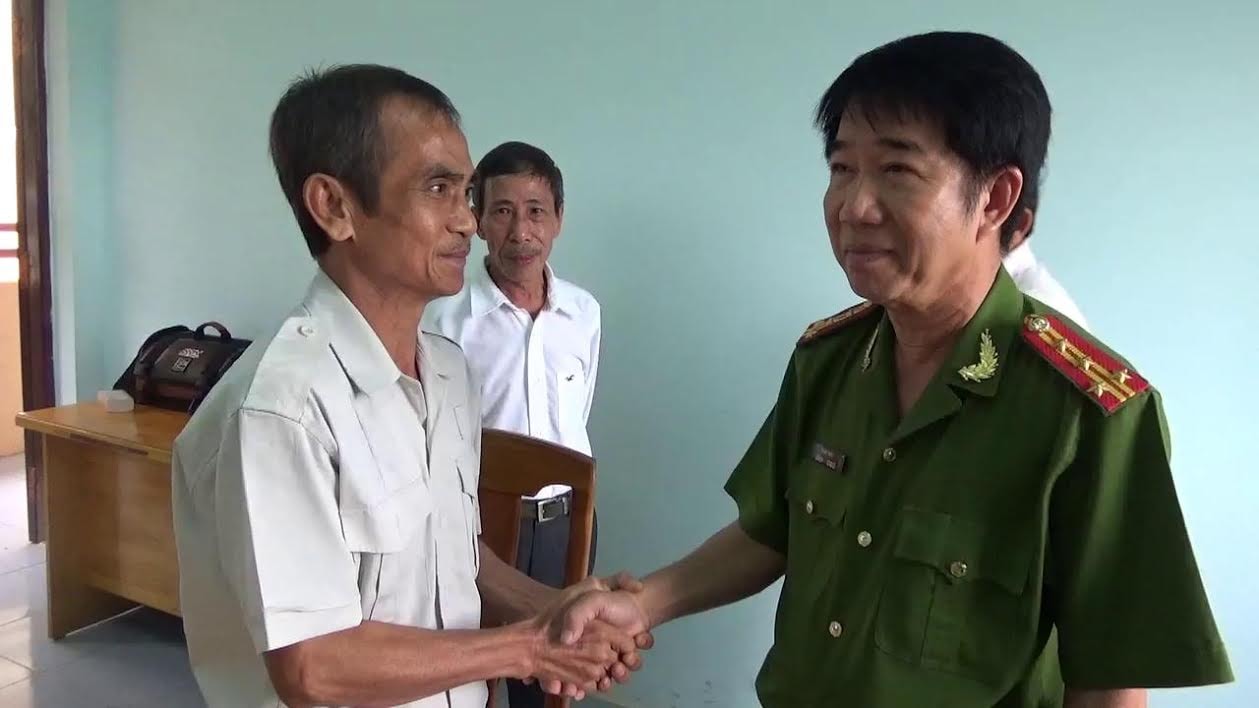"Khap To Nhu"
(Baonghean) - Last week, the 250th anniversary of the birth of the great poet Nguyen Du was solemnly celebrated at the national level.
Looking at the grand ceremony, I suddenly remembered the story of when Mr. Nguyen was still alive, he wrote a thoughtful and troubled Chinese poem: "Bat tri tam bach du nien hau/Thien ha ha nhan khap To Nhu". To Nhu is his given name. Roughly translated as "Three hundred years later, I don't know/Who in the world will cry for To Nhu?". Some people think that he was worried that future generations would not remember him, remember Kieu, cry for him and for Kieu. It sounds very heartbreaking.
But some people also think that Mr. Nguyen was a generous person who always thought about "ten kinds of living beings", so they think that he did not worry about himself, but only worried about whether "living beings" of later generations would have to shed tears because of the things that made him cry many times and lament like in the Tale of Kieu. That is not entirely unreasonable. Then people "picked out" the lines "A family was startled and bewildered/The unjust accusation shook the earth/The unexpected case blinded the clouds" in the passage about the honest Thuy Kieu family being falsely accused and framed.
Knowing that he did not commit a crime, he still had to admit that he was guilty because “The high beam pulled the rope of injustice backwards/Even a rock would break his liver and harden his body”. Meaning that being tortured and humiliated beyond endurance, he had to admit it. Being innocent but beaten to a pulp beyond his ability to bear it also became a crime. I thought that such an inhumane and unjust thing only happened three hundred years ago, in the Tale of Kieu. Unexpectedly, it still happens exactly the same today, without a single mistake. That is why there is the “hard labor prisoner” Nguyen Thanh Chan in Bac Giang with a 10-year wrongful sentence for murder. And most recently, the “Prisoner of the Century” Huynh Van Nen in Binh Thuan, who was falsely accused twice, had to “sit down and eat rice and serve time” for 17 years straight. They knew it was a wrongful conviction but they still had to admit it because once they landed in prison, even a rock would have its bravery and stubbornness crushed, let alone a human being, so they had to admit it to avoid torture and suffering day by day. Only then did we realize that prisons hundreds of years ago and prisons today are really the same.
 |
| Mr. Huynh Van Nen (left) was released after 17 years of suffering due to a wrongful conviction (Internet photo) |
Or like the saying "One day, the mandarins' habits changed/They caused harm all because of money". Mandarins were subordinates who helped the mandarins. They were sent or dispatched by the mandarins to do something. Those people often harassed the people by making up all kinds of stories and reasons to ask for money.
That situation still exists today. Like the story of several fire prevention and fighting police officers in Binh Tan District (Ho Chi Minh City) who were sent to a business to inspect the work and fire prevention and fighting system. Instead of using their professional skills to guide the business to implement it fully and accurately in case of an unexpected incident, they asked for money to get it off the ground. When they refused, they used all kinds of threats and intimidation. Finally, unable to bear it, they had to report it to the public. So the story was revealed. And "the child is foolish, the mother bears it", if the soldier makes a mistake, the boss must take responsibility.
On December 8, the Chief of the District Fire Prevention and Fighting Police personally led two "soldiers" who had committed wrongdoings to the business to apologize. That was a small matter of harassment, with clear witnesses and evidence. There are probably many similar matters, but they were not exposed because they were not denounced. Because who in their life has not had to pay unexpected money several times when being asked for that kind of money? From applying for school for their children, going to the hospital for medical examination and treatment, or going to the authorities to ask for a house building permit or opening a production or business establishment, whether big or small, all have to go through the "first" step of "where is the money" before talking about other matters. Opening a tea shop to extort money from people to make a living, one must have monthly money for tea and medicine for the militia. Selling cakes on the Mid-Autumn Festival or selling peaches on the roadside on the Lunar New Year must also have "cake boxes" and "peach branches" to give to the security guards. Otherwise, just clean it up right away or it will be confiscated. Those kinds of petty things, everyone sees and knows, and it's not "strange" behavior. Hundreds of years ago or now, people treat each other "just for money".
Saying this makes it clearer that Nguyen Du is a great talent and Truyen Kieu has a strong vitality, lasting over time not only because of its literary - artistic and lofty humanistic value but also because of its vivid and accurate practical summary value and profound contemplations on contemporary social life more than two hundred years ago but also for the future, today. Many verses in Truyen Kieu, until today, are still relevant and have a very high and accurate reference value. Those values create more vitality for Truyen Kieu. The saddest thing is that until today, we still have to cry about things like To Nhu had to shed tears several hundred years ago and we still do not know exactly when we will stop "crying for To Nhu"?
Buddha Mountain

